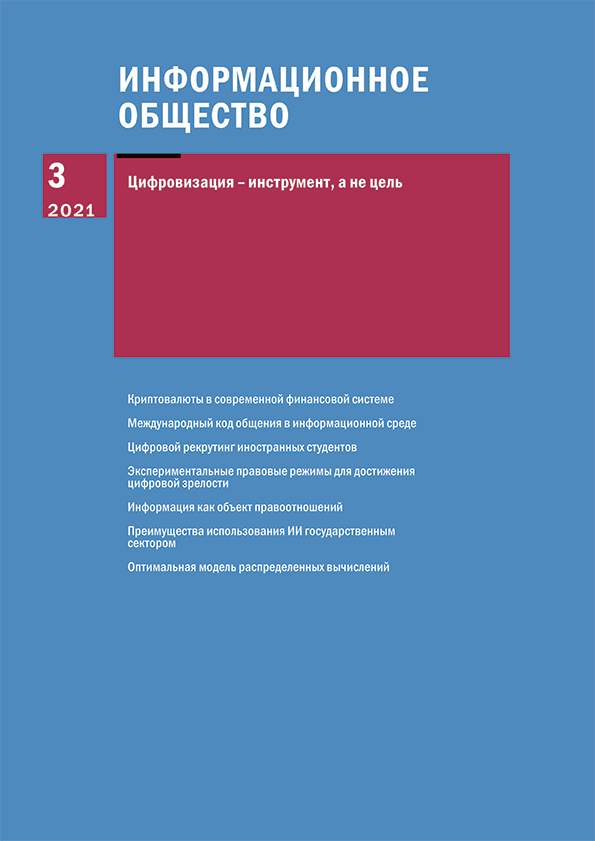With piety for information and civil law
Keywords:
subjective civil law, object of subjective civil law, informationAbstract
The authors proceed from the fact that information is a universal property of matter, which manifests itself in the development of the surrounding world, including at the level of transmission of genomic information in the process of procreation of man, flora, and fauna. These are the laws of the universe and they, as a rule, are not regulated by the rules of law (the first type of information). At the same time, from the point of view of law, information is an intersectoral legal category, which includes two stages: the first is collection, creation (modeling) of information, description of experience, etc.; at the second stage, information is used in various spheres of public life (the second type of information). In addition, in the process of scientific and technological development, information plays an important role, which is the result of the complex use of the laws of the universe and human creative activity (the third type of information). Relying on the availability and active use of self-developing programs (artificial intelligence) that create pre-programmed results, experts distinguish another type of information, calling it cyberinformation (the fourth type of information). Each of these types of information has unique characteristics and therefore needs separate legal regulation. In addition, one should recognize the existence of information that is stored in the memory of a person, is not communicated to other members of society and is not used by its owner in his creative activity (ideal information). Such information is recognized as a property of consciousness and is outside the scope of legal regulation. And vice versa, information expressed outside takes on an objective form, that is, it becomes part of the real world and is recognized as material information. Considering that a person disposes of his information in accordance with his will and in his interest, it can be stated that the right to information is not only constitutional, but also a personal subjective right, in which a citizen performs actually and legally significant actions within the framework of civil law. At the same time, the dialectical connection between the subjective right of one person and the subjective duty (measure of proper behavior) of other subjects of civil turnover remains. Thus, in the system of civil legal relations, information as an object of civil rights accompanies property, personal non-property and corporate relations, as well as digital rights. In fact, the information is "omnipresent", so it should be reflected in Art. 128 of the Civil Code of the Russian Federation, since this article is a fundamental norm establishing a list of objects of civil rights, the legal regime and limits of regulation of which are enshrined in the subsequent sections of the Civil Code of the Russian Federation, that is, in order to achieve a dialectical connection between the general and the special, its disposition should mention all objects that have received institutional development, including information.
Published
How to Cite
Issue
Section
Copyright (c) 2021 Олег Александрович Хатунцев, Валентина Николаевна Синельникова

This work is licensed under a Creative Commons Attribution-NonCommercial-ShareAlike 4.0 International License.
